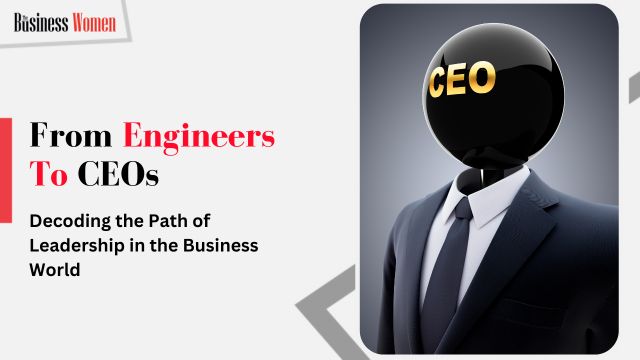Becoming a CEO entails a journey of preparation, education, and accumulation of relevant experiences. A solid educational foundation is a bedrock, followed by immersive work experiences that chart the course toward a successful leadership role. Interestingly, a significant proportion of CEOs possess engineering degrees, with around 45 per cent of Fortune 500 Chief Executive Officers (CEOs) holding engineering and business administration degrees. This figure overshadows the 11 per cent of CEOs who graduated from business schools. The diversity within the engineering domain, ranging from computer and electrical to chemical and mechanical specialisations, enables graduates to venture into various industries.
Engineering Prowess at the Helm: Deciphering the CEO-Engineer Nexus
Prominent CEOs, such as Jeff Bezos of Amazon, Satya Nadella of Microsoft, Mary Barra of General Motors, and Carlos Ghosn of Nissan, all boast engineering backgrounds. The question arises: What propels engineers to the forefront of the CEO landscape? Delving into the attributes that make engineers exceptional leaders provides insights into why they occupy these influential roles.
Precision in Detail: Fostering Perfectionism
Engineers are renowned for their meticulous attention to detail—a quality honed during their academic pursuits and refined in their professional endeavours. This meticulous approach contributes to their ability to comprehend complex problems intricately, considering their long-term implications. Just as a minor oversight in establishing a complex machinery setup could have catastrophic consequences, a CEO’s role demands similar precision. CEOs must meticulously envision from the end-user perspective and assess the ramifications of big and small decisions on the company’s trajectory.
Pioneers of Problem-Solving: A CEO’s Arsenal
Engineers inherently possess robust problem-solving skills, whether tackling intricate mathematical equations, managing risks in challenging situations, or dissecting decision analyses. Their training equips them to navigate multifaceted problems related to machines, bridges, or business strategies. Moreover, their aptitude for cost-performance analyses enables them to optimise outputs, a skill essential for successful leadership and the trajectory of a thriving enterprise. Notably, numerous successful CEOs with engineering backgrounds attest that the problem-solving skills they cultivated are seamlessly transferable to the business world, unveiling the core reason behind engineers’ prevalence in the CEO arena.
Deciphering Team Dynamics: Identifying Talent
Effective teamwork is pivotal for business success, and assembling the right team is central to CEOs’ responsibilities. Engineers excel in identifying talent and expertise, a trait seamlessly aligned with CEOs’ duties. Successful CEOs ardently endeavour to cultivate a company culture that attracts and retains top-tier talent. This uncanny ability to scout and nurture talent lends engineers a natural affinity for the demanding CEO role.
Technological Savvy: An Edge for Progress
Establishing and nurturing a flourishing enterprise necessitates a firm grasp of cutting-edge technologies. While engineering degrees aren’t a prerequisite for this aspect of leadership, most financial CEOs lack the expertise required. Engineers thrive in creating innovative products that harness technological advancements to enhance efficiency and productivity. Their penchant for optimisation, efficiency, and innovation equips them to spearhead successful companies in the ever-evolving technological landscape.
Engineer to CEO: A Feasible Transition
The path from engineer to CEO is indeed traversable. The common thread connecting renowned engineers-turned-CEOs is their ability to approach business processes through a programming lens, drawing parallels between coding tasks and business strategies. This approach, cultivated during their engineering education, empowers them to embrace lean start-ups, programmatic marketing, and growth hacking methodologies. Engineers’ data-driven mindset, reliance on interactive experiments, and penchant for systematic approaches position them as catalysts behind the triumph of several leading brands.
Conclusion: The CEO Blueprint—Engineered for Success
The prevalence of engineers as CEOs is not a mere coincidence but a manifestation of their unique skill set, attuned to the multifaceted responsibilities of a chief executive officer. Their precision, problem-solving acumen, talent scouting abilities, technological prowess, and data-driven approach combine to create a formidable leadership package. While engineering’s prevalence in the CEO domain can be attributed to these qualities, it’s imperative to remember that this path is open to all driven individuals, regardless of their educational background. In the end, the journey from engineer to CEO is guided by the convergence of expertise, experience, and a vision for transformative leadership.








